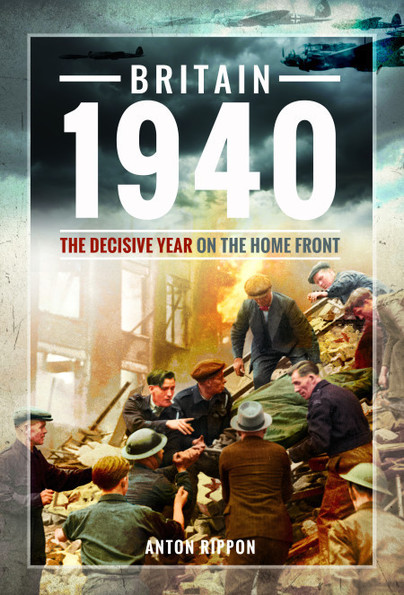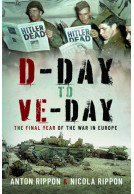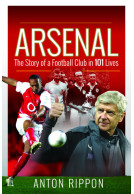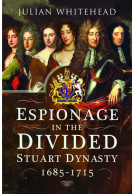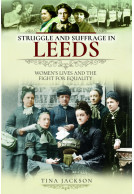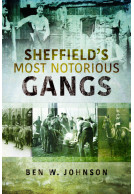Britain 1940 (Hardback)
The Decisive Year on the Home Front
Imprint: Pen & Sword History
Pages: 208
Illustrations: 32 black and white illustrations
ISBN: 9781526767707
Published: 23rd March 2020
(click here for international delivery rates)
Order within the next 5 hours, 53 minutes to get your order processed the next working day!
Need a currency converter? Check XE.com for live rates
| Other formats available | Price |
|---|---|
| Britain 1940 Paperback Add to Basket | £14.99 |
| Britain 1940 ePub (9.0 MB) Add to Basket | £6.99 |
On New Year’s Day 1940, the people of Britain looked back on the first four months of the Second World War with a sort of puzzled unease. Wartime life was nothing like what they had imagined. Unlike the First World War there was no fighting on the Western Front. Indeed, there was no Western Front. There had been no major air attacks. Four days into the war German bombers had approached the East Coast but no bombs were dropped. Everyone carried their gasmask but there was no poison gas. Petrol was the only commodity rationed. There was no noticeable shortage of food, which was as available now as it had been before Hitler invaded Poland. Young men called up to join the forces were largely idle. They certainly were not fighting the Germans. In January 1940, life in wartime Britain was simply an inconvenient version of life in peacetime. Even the hitherto strictly enforced blackout regulations were relaxed when it became obvious that, because of them, people were being killed in road accidents.
On New Year’s Eve 1940, Britain was deep in the throes of war. In September the Germans had launched what was to be an eight-month bombing campaign that targeted every one of Britain’s major cities. By the end of 1940, German air raids had killed 15,000 British civilians. The so-called Phoney War had ended in May, when Hitler attacked the Low Countries. After Dunkirk, with the Luftwaffe poised just across the English Channel, and with the very real threat of invasion, the Second World War was now anything but phoney.
When Britain went to war in September 1939, it wasn’t instant rationing and bombing. Even up to new years 1940 there was this feeling of anti-climax to the war and it was all seen as a bit of inconvenience with the Blackout/gas masks/Anderson shelters. It was soon becoming known as the Phoney war. Anton Rippon easily explains each part of the home front that kept Britain going from make do and mend to the women taking up the men’s jobs.
Tastes Through Time website
It sheds light on the lives of ordinary people with the effects and work that everyone had to put in. It makes you ask yourself you if you could survive and cope with the changes. Especially with the beginning of the war being very much fighting an invisible enemy – much like today. It wasn’t until 8 months after Britain declared war that the war took hold and bombs started dropping a year after it was declared.
This is an extremely easy book to pick up and dip into and I highly recommend it.
Rippon nicely weaves together anecdotes and stories of actual individuals that help illustrate the overall experience of these months.
The NYMAS Review
From the start of war, to the German invasion of the Low Countries and France, there was a phony war, then Britain faced an enemy at the door. The author provides a fascinating account of Britain on the Home Front, from boredom, to fear of invasion, to the sense of victory to come – Very Highly Recommended
Firetrench
Read the full review here
Rippon's book tells us about a pivotal year for the British people. A year that showed how much sweat and tears they would have to shed to overcome the Axis forces. A year that certainly marked the history of the British nation and that will be remembered forever. A well written book that fascinates for its little stories of lives in war.
On The Old Barbed Wire
Read the full Italian review here
Anton in lockdown: ‘Even I cannot wait for the kindest of cuts…’ as featured by
Derby Telegraph, 20th May 2020
Anton in lockdown: ‘My old pal Trevor always brings a bit of cheer’ as featured by
Derby Telegraph, 13th May 2020
Author article commemorating VE Day: After violent thunderstorm came the sun… and news of a ‘victory over Germany’ as featured by
Derby Telegraph, 8th May 2020
Author article: ‘Almost too much time to reflect on life’ as featured by
Derby Telegraph, 6th May 2020
As featured on Sports Journalists' Association
Sports Journalists' Association
How sport tried to play on in WW 2 as the air raid sirens sounded
Eric Brown, Sports Journalist Association, July 2020
See the feature here
By January 1940 Britain had been at war for three months; although apart from the mass evacuation of thousands of children, and the preparedness for war, you'd have hardly known it. By the end of 1940 it was a different story altogther and events had taken place that would go down in history: the evacuation of the British Army from the beaches of Dunkirk, the Battle of Britain in the skies over Kent, the beginning of the Blitz in September 1940.
Paul Nixon
Using newspapers as the mainstay of his research, Anton Rippon has written a book that can be dipped into or read from cover to cover. I started dipping and then read from front to back and it's a useful reminder of a time in our Nation's history when the country united and somehow, seemingly against all the odds, somehow managed to triumph.
This year sees the 80th anniversary of the events of 1940 and whilst this book serves as a timely reminder of our ancestors' sacrifices, there are also stories that may be less well-known; the looting of bombed houses and petty thievery by the Home Guard, for instance.
I hope that Antion Rippon will be writing books in a similar vein for the years that followed, and I for one will look forward to them if he does so.
Read the full review here
The people of Britain could be forgiven for thinking that WW2 was phoney - nothing much happened during the first four months (the last four months of 1939), and Anton's revelations of relaxations and no real change to life have parallels again with the situation in which we find ourselves now. But things changed dramatically as we saw in the New Year. Life would never be the same again - and how many times have we said that during the past few weeks? Absolutely terrific!
Books Monthly
Rating: 5 out of 5 stars
NetGalley, Abby Siverman
A fascinating look back at history.A revealing look at the average British citizen there lives in 1940 their daily existence and how they coped.
Rating: 5 out of 5 stars
NetGalley, Paul Brown
A fascinating account of how ordinary Britons adapted on the homefront during 1940 as the war crossed the Channel. Initially, it was thought of as a "phony war" and an inconvenience, until the bombings began and the huge death toll began to mount. Blackouts were relaxed because more people were being killed in road accidents. It was thought that the cure was worse than the disease... It's impossible to read this book in 2020 and not find comparisons with the Coronavirus crisis, not in the too-often-invoked Blitz spirit, but in the complacency that was shown before the bombers arrived. This is a tale of fortitude and courage that many readers will find stirring. Rigorously researched and well written, it's an enjoyable and informative read.
This book looks at the first full year of WW2, where the war had been bought to the British home front. Now this is probably the busiest time of the war for the home front as you’ve got the Battle of Britain and the Blitz in London, I time where London suffered a lot. The book is about both sides of the war in that it covers the home front and the war front, it’s very well written and there is a balance in the book and not one side of the war dominates. The book is more or less a chronicle look through the year and has some very interesting little snippets of information. It’s an all-encompassing general book and is totally about one thing and I would class as a general book about the war that year. If you were looking for a more in-depth look or detail, you would be better off with another Pen and Sword book. It was a very good read and I could actually see a book being done for each year of the war.
UK Historian
Read the full review here
Rating: 5 out of 5 stars
NetGalley, Susan Johnston
As we all go through a trying time, it is useful to reflect on a previous time when life and death were far more tenuous than now. 1940 in Britain shows just how much 12 months can change everything. At the beginning of the year, although they had been at war since September, the people of Britain were beginning to wonder if this would continue to be a Phoney War for them. By the end of the year, they had their answer in a most devastating way.
It brought both The Battle of Britain where the two airforces fought over the skies in an attempt to clear the way for invasion and the Blitz where the targets shifted from military objectives to an attempt to break the will of the Nation. Had there not been a leader like Winston Churchill the results might have been chillingly different. As it was, with death falling from the skies, the people of Britain had their mettle tested daily. We can all give thanks that they did not break.
Unlike many of the books on this time, the author did not focus on London, which bore the brunt of the devastation. It also looks at many of the other cities and towns where bombs fell. It tells of the increasingly deadly effects of the campaign including the night when St. Paul’s stood alone amidst the blazes, proud and defiant. It also tells of the places like Coventry, Derby, Southampton, Liverpool and so many many others.
It is a story of grit and courage in the face of almost overwhelming odds. We can all learn from their bravery.
Five purrs and two paws up.
This was an interesting read, with plenty of historical facts.
NetGalley, Suzanne Jones
Article: 'When ‘phoney war’ turned into the deadly real thing as featured by
Derby Telegraph, 28th March 2020 – words by Jane Goddard
Rating: 5 out of 5 stars
NetGalley, Cristie Underwood
The author's decision to focus on the everyday life of the British citizens in 1940 before they won the second World War. The fact that these people went about their days a lot differently than they had in the World War I is a part of history that I never knew. There were many other facts that I learned and highly recommend this.
Between essay and chronicle, this book describes what was the crucial year of the Second World War for England, the year in which, though seemingly invincible, Hitler (thank God) lost the war.
NetGalley, Maria Grazia Beltrami
There were many things though that I learned from the book. It does give a different view that is common to that first full year of the war. I like the selected cover art.
NetGalley, John Purvis
About Anton Rippon
ANTON RIPPON is an award-winning newspaper columnist, journalist and author of over 30 sports books including Gas Masks for Goalposts: Football in Britain During the Second World War and Hitler’s Olympics: The Story of the 1936 Nazi Games. A former Sunday Telegraph football writer, his sports features appeared in The Times, The Independent, The Guardian, and FourFourTwo magazine. Rippon was named Newspaper Columnist of the Year in the 2017 Midlands Media Awards.







